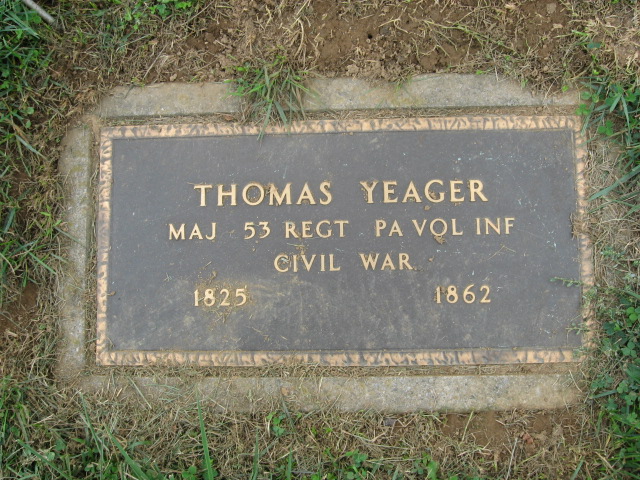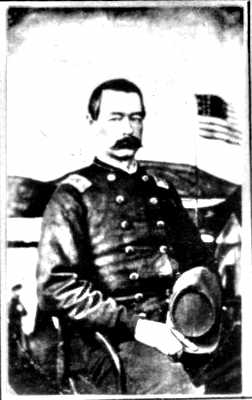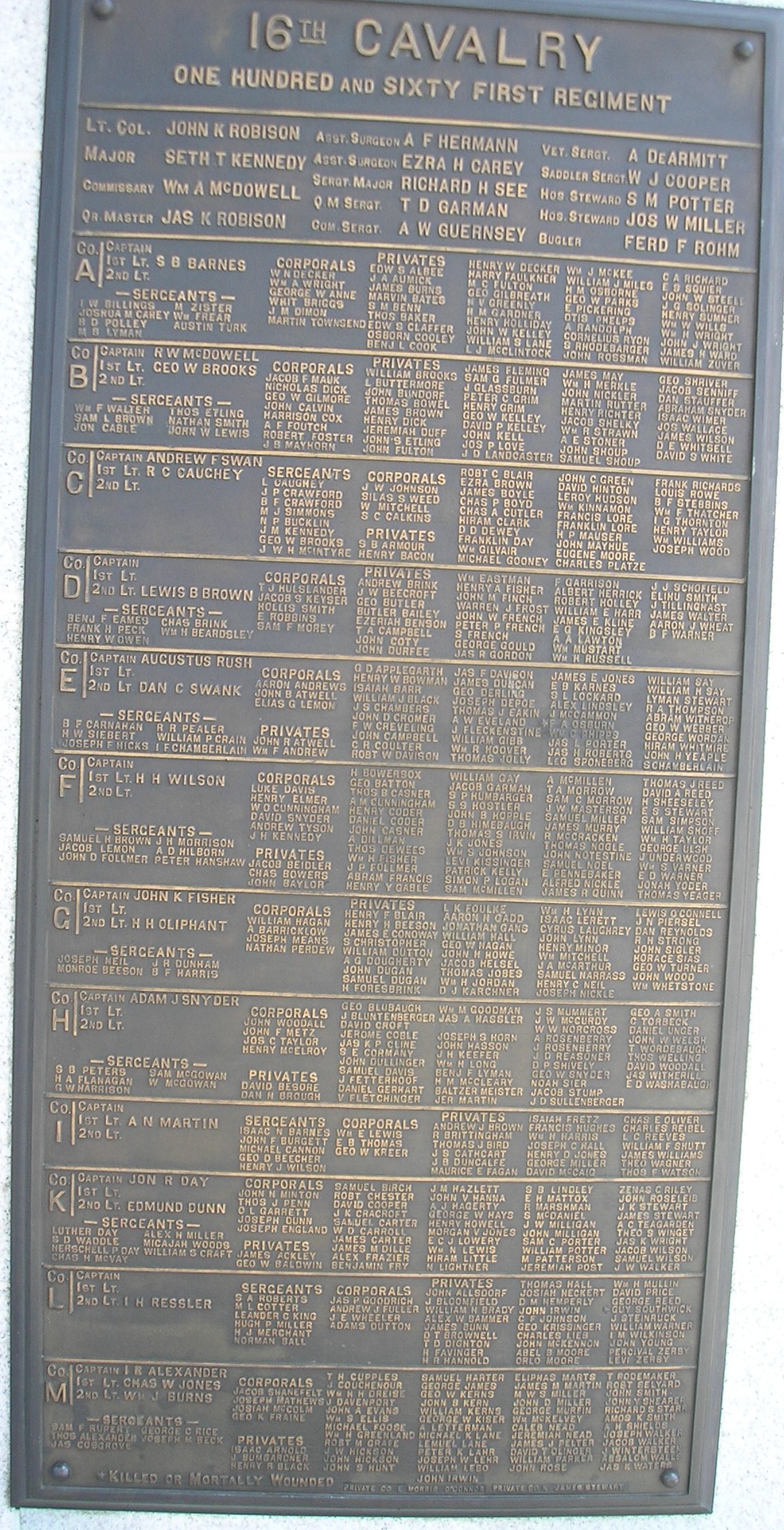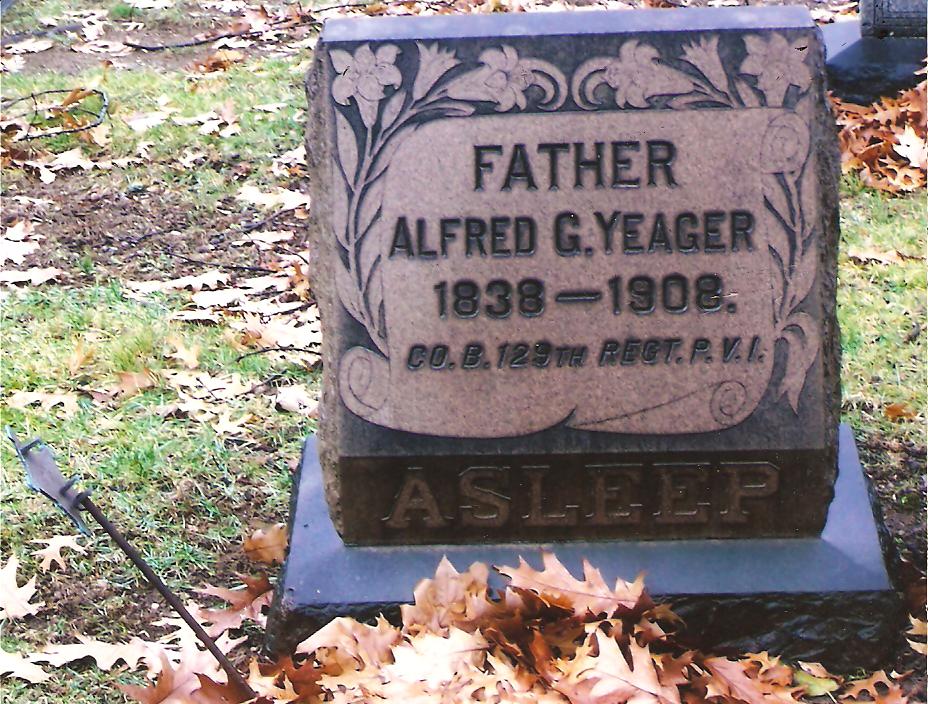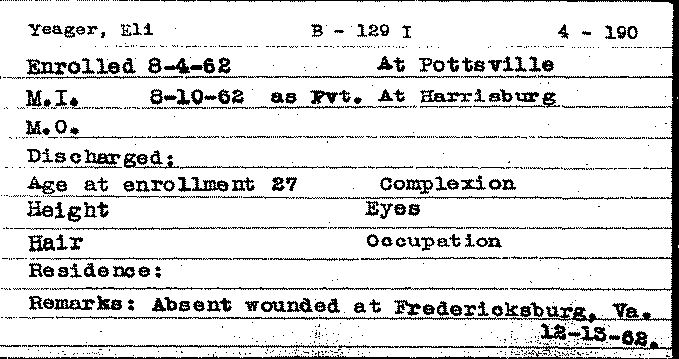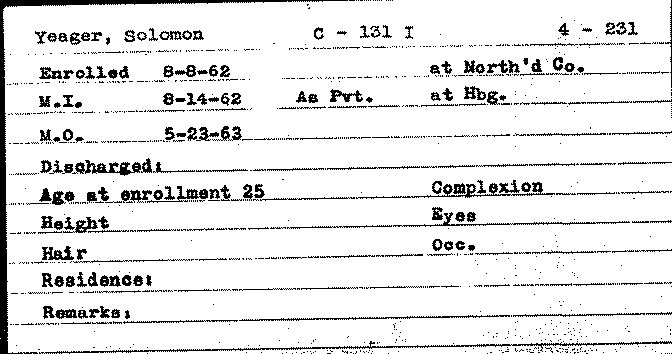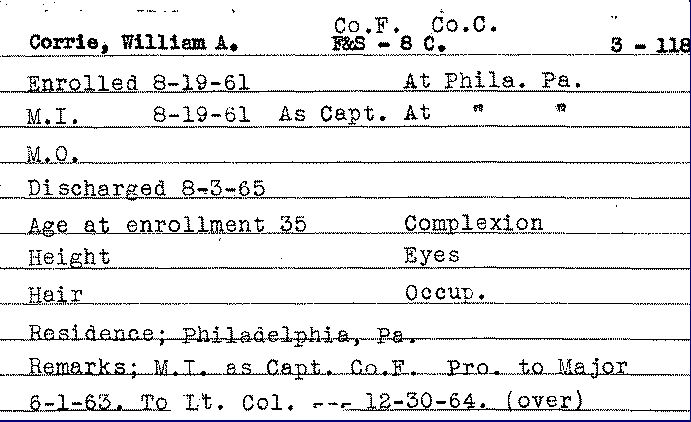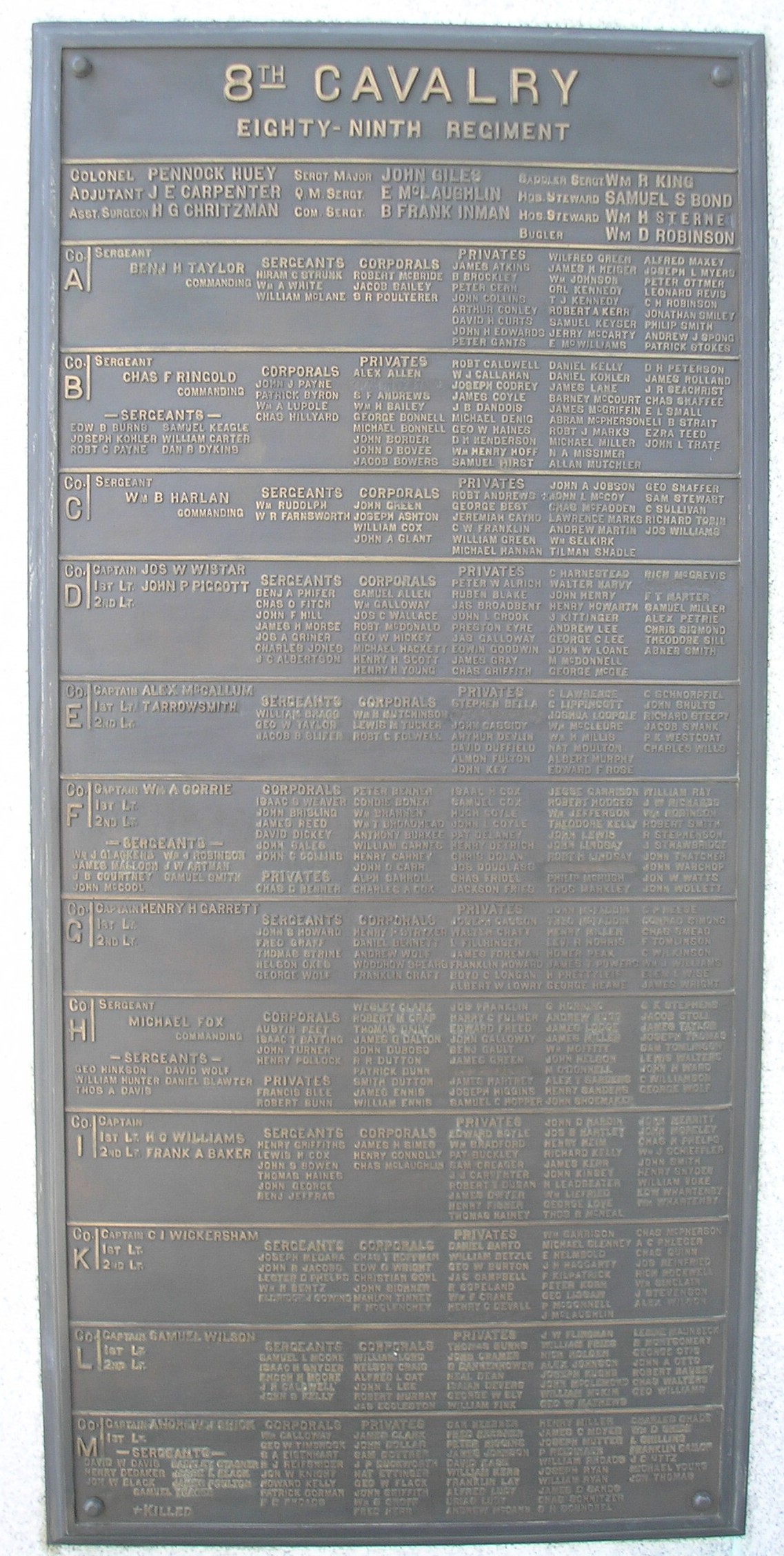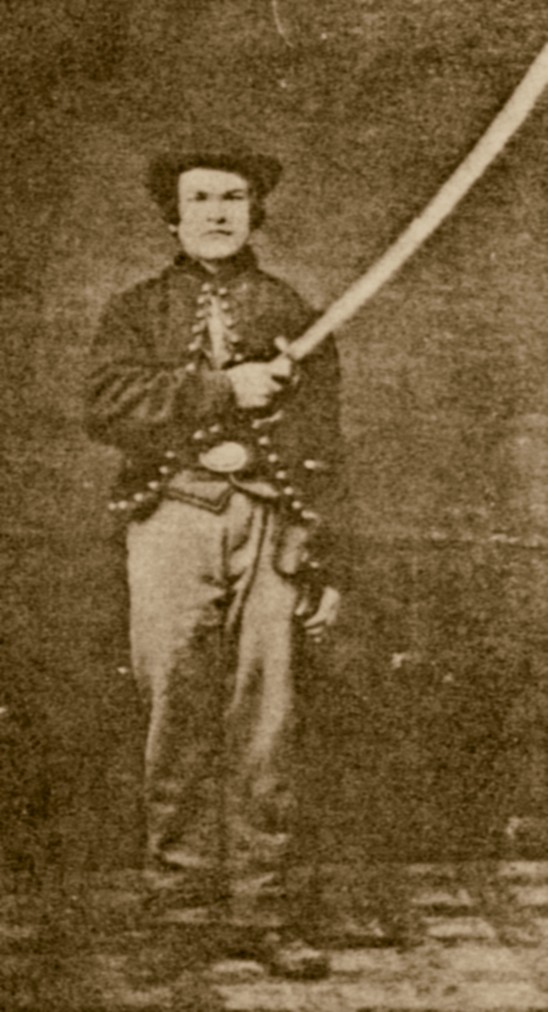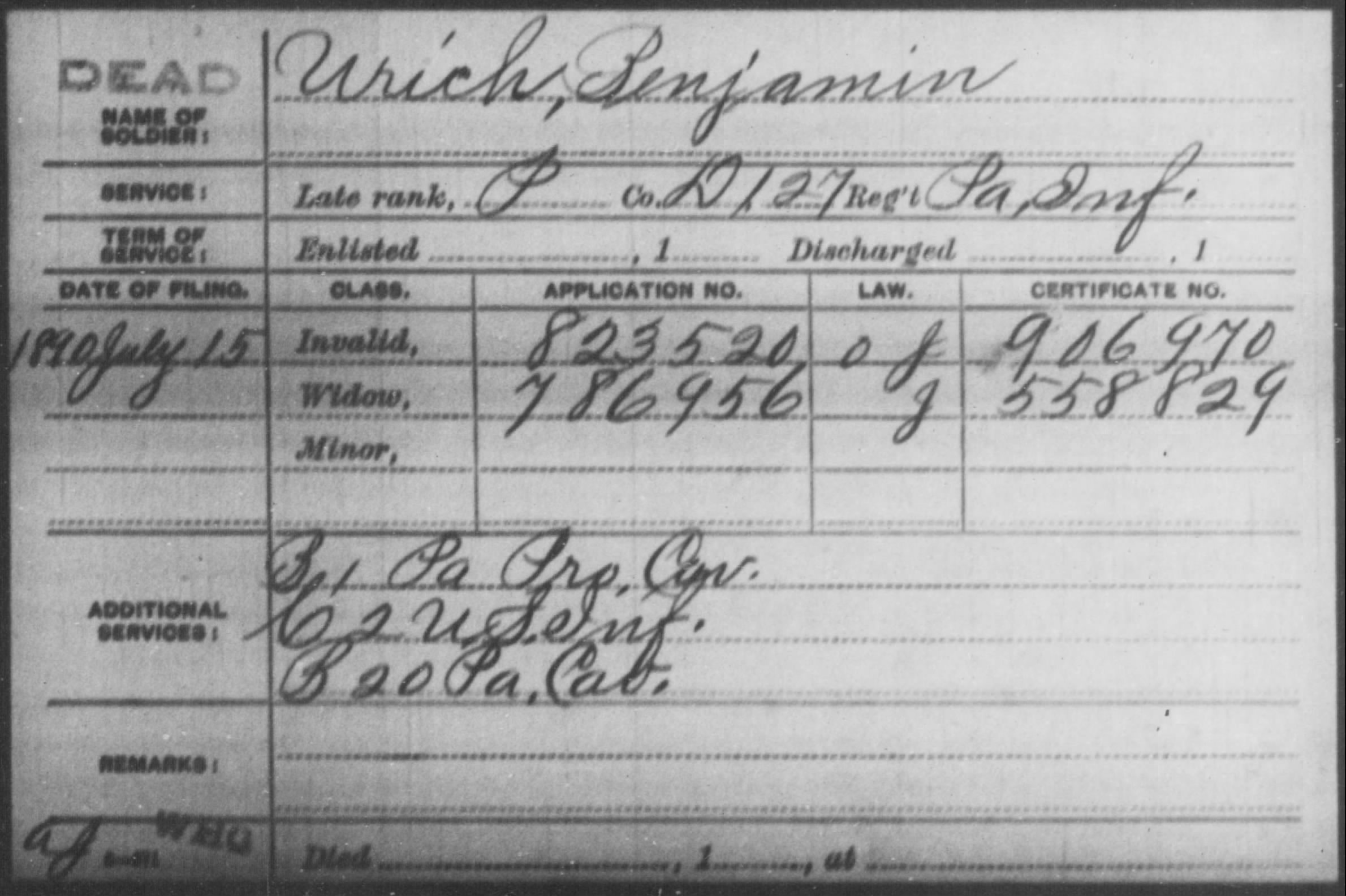The Yeager Family in the Civil War (Part 4) – Major Thomas Yeager
Posted By Norman Gasbarro on May 22, 2015
In 1912, the Hon. James Martin Yeager wrote and published A Brief History of the Yeager, Buffington, Creighton, Jacobs, Lemon, Hoffman and Woodside Families and Their Collateral Kindred of Pennsylvania. Yeager was formerly the President of Drew Seminary for Young Women of Carmel, New York as well as a former Member of the House of Representatives of Pennsylvania and a Marshal of the Middle District of Pennsylvania. On pages 82-85, he presented a list of Pennsylvania soldiers he identified with the Yeager surname who had fought in the War of the Rebellion, 1861-1865. In addition to the names of the soldiers, he named the regiment and company in which they fought. Sixty-three veterans were thus identified. A free download of Yeager’s book can be obtained at the Internet Archive.
There is much information still to be discovered about each of the veterans. Readers of this blog are urged to add information to what is provided below – particularly genealogical information about each of the men, including the names of their parents and their decent from the earliest Yeager’s who arrived in Pennsylvania. Additional stories about the Civil War service of these veterans is also sought, particularly if readers have access to the pension application files and military records from the National Archives. Pictures are especially welcome! Comments can be added to this post or sent by e-mail.
This post continues a multi-part series on these Pennsylvanians with the Yeager surname who served in the Civil War – and focuses specifically on Major Thomas Yeager, reprinting pages 87-93 of the text of the aforementioned book.
—————————-
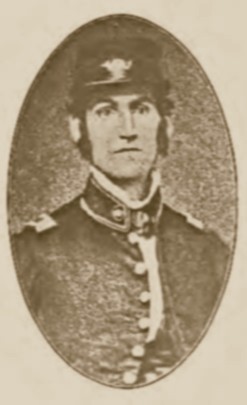
Major Thomas Yeager Killed leading the charge at Fair Oaks, Virginia, 1 June 1862, the day President Lincoln signed his commission as Brigadier General
Show Pennsylvania Troops Were Real First Defenders
Letter from Major Thomas Yeager Shows Falsity of Massachusetts’ Claim – Arrived One Day Ahead
Allentown, Pennsylvania, 29 April 1911 — In view of the fact that the veterans of the 6th Massachusetts Regiment are disputing the claim that the Pennsylvania First Defenders were the first troops to reach Washington in defense of the Union upon Lincoln’s call for volunteers after Fort Sumter had been fired upon, the first letter home by Major Thomas Yeager, commander of the Allen Infantry, of Allentown, and the leader of the First Defenders, has been resurrected.
This is believed to have been the first letter home by any soldier who went to the Civil War. The letter was written by Major Yeager, then Captain Yeager, on Saturday, 20 April 1861, two days after the First Defenders had arrived in Washington in advance of all other troops. The letter is now [in 1912] in possession of Thomas P. Yeager, of Allentown, late Sergeant of the Regular Army, and a nephew of Major Yeager. It was written to Reuben Guth, who was an Allentown newspaper editor in 1861, as a subject for editorial comment.
Mistaken Identity
An anonymous writer t the New York Sun, who signs himself “Company K, 6th Massachusetts Volunteers,” is mistaken in his assertion when he says he saw the Pennsylvania First Defenders held up in Baltimore as the Boston troops were fighting their way through the mob there, 19 April 1861. On that day the Pennsylvania First Defenders were already in Washington, having arrived the night before. What the Boston man saw was Colonel Small’s Philadelphia Regiment, which, unfortunately did not get through the mob that day.
To a Pennsylvanian, furthermore, the Boston soldier is laughably mixed up in his geography. He ways the Pennsylvanian First Defenders he saw in Baltimore, 19 April 1861, were enroute from “Philadelphia to Washington,” whereas the truth of history is that the First Defenders went direct from Harrisburg to Baltimore, and thence to Washington, on 18 April 1861, after having been sworn in at Camp Curtin.
But the letter of Major Yeager, who was killed leading the charge at Fair Oaks, the very day that Lincoln, who called him a “rare and indomitable spirit,” decide to make him a brigadier general, settles the question.
It proves beyond doubt that the five Pennsylvania Companies, the Allen Infantry, of Allentown, the Ringgold Light Infantry of Reading, the Logan Guards of Lewistown, Captain John B. Selheimer, the Washington Artillerists and the National Light Infantry, of Pottsville, whose survivors on 18 April last in Allentown celebrated the 50th anniversary of their arrival in Washington were the ones to get there first and are the First Defenders.
Yeager’s Letter
Major Yeager’s letter follows: —
Sir: — I suppose you heard of the troubles at Baltimore. We were the first men that crossed Mason & Dixon’s line on Thursday last. The Secessionists in Baltimore retained our box of merchandise that the citizens of Allentown gave us for an outfit. We received all our trunks but the box is wanting. Two of my men saw it in Baltimore when it was taken from the Harrisburg railroad train and placed in a baggage wagon.
We just escaped with our lives going through Baltimore. I suppose you have already heard two of my men were hurt with clubs and stones. we have the stones in our headquarters.
Where is the other Allentown company? We have no tidings of them here. The railroad is torn up between Harrisburg and Baltimore and between Baltimore and Philadelphia. We have no news here. Unless the North sends men here soon and enough of them there will be doubts about holding Washington.
I presume you are all aware of the arrival of the Massachusetts regiment. They are quartered in the Senate chamber, in the same capitol building where we are. There is doubt whether any more Northern troops can pass through Baltimore.
Colonel Forney, editor of The Philadelphia Press, called on me personally after my arrival. He took me to his office, introduced me to the army officers and congratulated me for being one of the first from the Keystone State on the ground. Partook of champagne and brandy. He gave me 100 franked envelopes and said as soon as they got all he would send me more.
The loyal citizens are calling every day at our headquarters to render service. A Miss Bache sent us linens and things for those hurt fellows in our quart4ers, and white sugar and milk for poultices. The cooking establishment in the Capitol is not well fixed. The Government is fixing every minute as it. We got 59 new minnies last night; that is muskets. With each came fifteen rounds of ball and cartridge. So there are 1500 rounds in the Capitol. There are 80,000 more in the arsenal.
The Northern troops will all have to come by water twenty-four hours from Philadelphia. There are three men-of-war stationed at the mouth of the Potomac. That seems at present the only avenue of entrance for the Northern troops. I presume you know that the Government blew up the Harpers Ferry Arsenal to prevent the rebels from recruiting there.
A large number of loyal citizens, descendants of Pennsylvania, residing here, come here and glory in our spunk in fighting through the riot on Thursday in Baltimore, three miles from one depot to the other. But we fought through nobly and stood by the Stars and Stripes. William Ruhe and William Kress brought up the rear of the company, as I had no lieutenant. They showed fight with the butts of our old muskets. Oh, it was awful! You cannot imagine.
Ours was the first riot on Thursday and on Friday came the second, when the Massachusetts regiment, about 1000, fought through. They all had minnie muskets out of the Springfield Armory, all leaded, and fifteen extra rounds. They killed a good many secessionists and lost two men and some wounded. Good for Massachusetts!
As to questions from the mob when we passed through, In had my men instructed to say nothing and not look around and stick to me. They did so.
The mob yelled: “Ay, you traitors! Abolitionists! Abe Lincoln’s militia! Hurrah for Jeff Davis! Hurrah for South Carolina! capitol suckers! Hit him! Stone him! what muskets, no locks, no powder, sponges to wipe cannon for Jeff Davis!”
Right and left on us: their fists on our noses. You have no idea of their language and conduct and the danger we were in.
The only reply I made was in one case to the question, “Where are you going?” My remark was, “For my country.”
The belief in Harrisburg, when we left there on Thursday morning, of all Curtin’s administration and General Keim was we would be massacred in Baltimore, as we were the first Northern troops to cross Mason and Dixon’s line, but they did not let us know it. I took the hint, but kept it from my men, as we were only a few hours in Harrisburg. General Keim at 1 o’clock at night called at my door, saying: — “Captain Yeager, immediately to Washington. Load your guns.”
Says I: — “They are not in a condition; no locks, no flints.”
He remarked: — “They are good for clubs.”
When he said that to my answer, the word “club” gave me the hint of an intended massacre in Baltimore of us, but I left my men drink freely to keep up their spirits, so they should not take the hint.
We were the first Pennsylvania troops getting to the seat of freedom, and not only of Pennsylvania, but of all free States. This courage and brisk move my us won us friends not only in Pennsylvania, but in the friendship also of all the Southern and Northern Union papers, and particularly that of Colonel Forney, who called on us immediately and rejoiced in our courage in coming through the plotting assassins, especially since we did not have good arms.
If the Northern men take the stand in this matter that I did we will between now and three months march back to our native firesides with the minnies on our shoulder, drums beating, trumpets sounding, the Stars and Stripes in our hats and playing “Hail Columbia” and the perpetual “Star Spangled Banner.” “Hurrah. Hurrah. Hurrah.”
But this stand and firmness our loyal people of the Free States must take immediately. Let them come in citizens’ dress as passengers. They can be organized here. send me a good strong, sober and honest Allentown man for a second lieutenant, with good character, immediately, in citizens’ dress. When he arrives in Washington let him inquire for Captain Yeager’s Pennsylvania Volunteers. He will find us in a few moments as all the free States men here know me by reputation already, for the reason that I was the first here.
Colonel Forney, since he called on us, sent a messenger whether he could do anything more. Forney is a man, and the army officers I am acquainted with are men too.
Their acquaintance is gotten in this way: They send messengers to different quarters of the volunteers, who rap at the door of the quarters and inquire for Captain So-and-So. “Is he in?” The answer is “Yes.” The reply of the messenger is “Captain So-and-So, of the United States Army, will send a message in a few minutes.” In a few minutes a message comes in writing, address: “Captain Yeager, Pennsylvania Volunteers: I desire to see you in my office in one hour at the office in the Capitol, East, North, or Agricultural office as the case may be, In this way, you find out where they are. They are all in full uniform, very complimentary, but fierce, savage, and resolute.
I will have my trunk full of orders, letters, calls and instruction by the time I get home. I preserved them all fr the hereafter for information. I already have about a hatful. We are called to Major McDonnell’s quarters every few hours through the day and night, the captains only, to receive instructions. He is the main man, called mustering officer, United States army. Fine man, 6 ft. 2 in. This letter is dated Saturday night, 20 April, but I did not get it finished till Sunday night, so the latest is in and all correct.
The following postscript was added to the letter: —
P.S. They established a post office yesterday in the Capitol for the benefit of all volunteers. All letters addressed to me or my men must be addressed Captain T. Yeager, Pennsylvania Volunteers, Capitol Building, Washington, D.C. Tell Mrs. Yeager and my dear children and all friends all is right and feel good.
Always immediately send my wife word when I write, to pacify her. This is all correct in this letter. You can get notices out of it and editorials as much as you want. The substance is in but I have no time to write “scientific.”
——————————–
Major Thomas Yeager is buried at Union-West End Cemetery, Allentown, Lehigh County, Pennsylvania. A military grave marker notes his final service in the 53rd Pennsylvania Infantry, Headquarters, as Major, and his death year of 1862. His Pension Index Card states that on 29 June 1863, his widow Sabina Balliet applied for pension benefits, which she received and collected until her death in 1877. Fold3 has 26 pages of documents from the pension file. For additional information about him and his wife, see the Findagrave Memorial.
 ;
;
